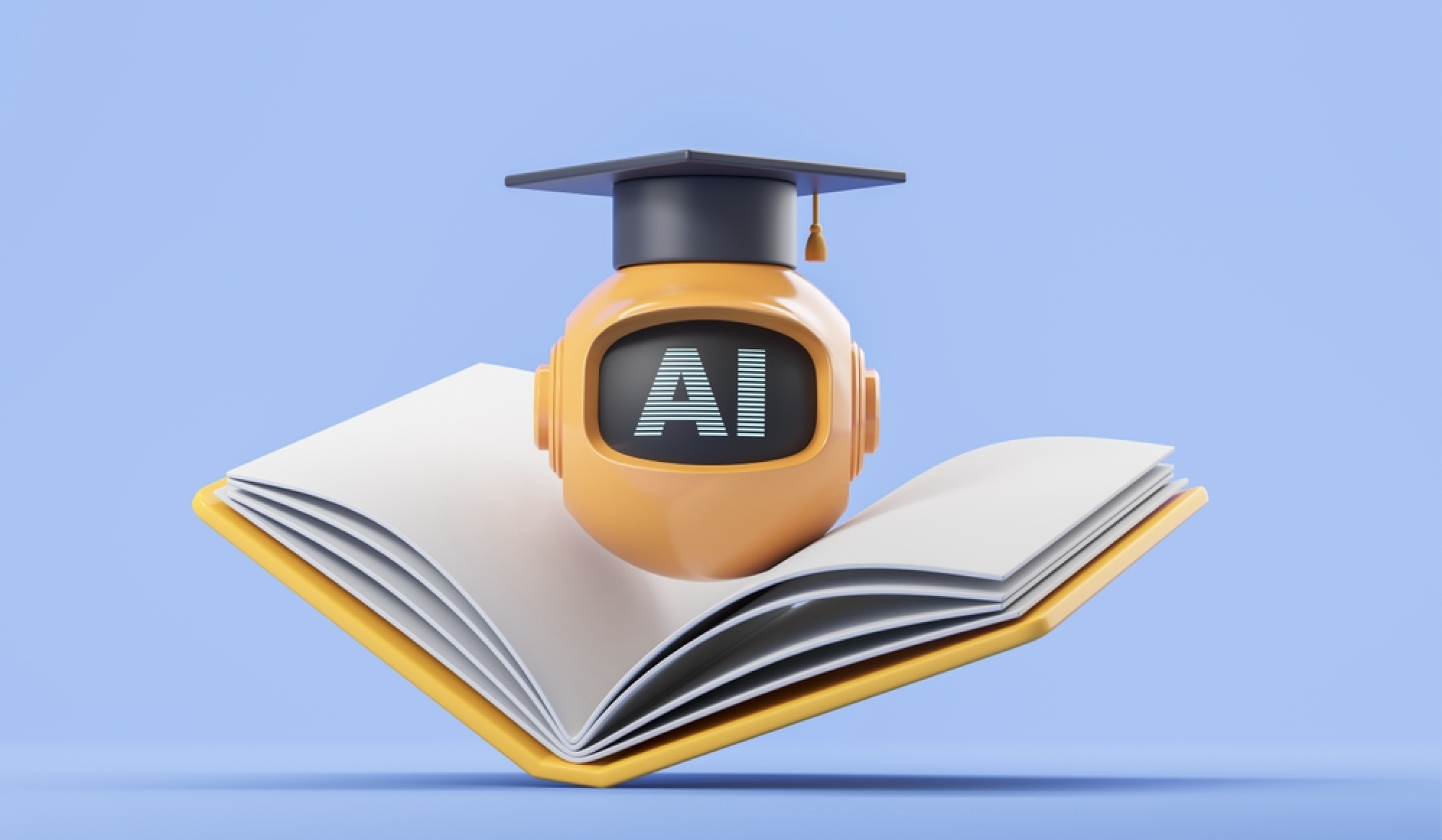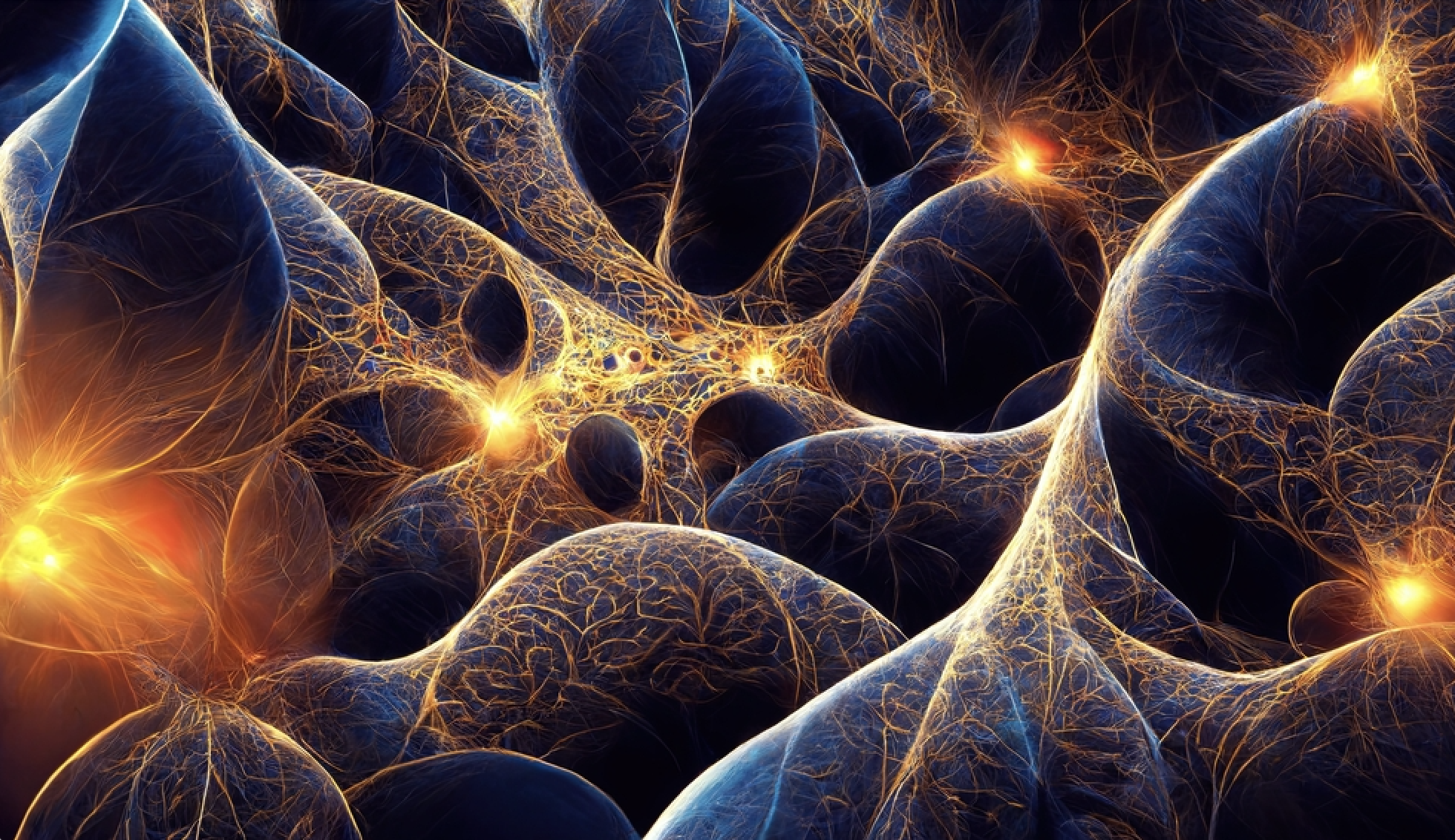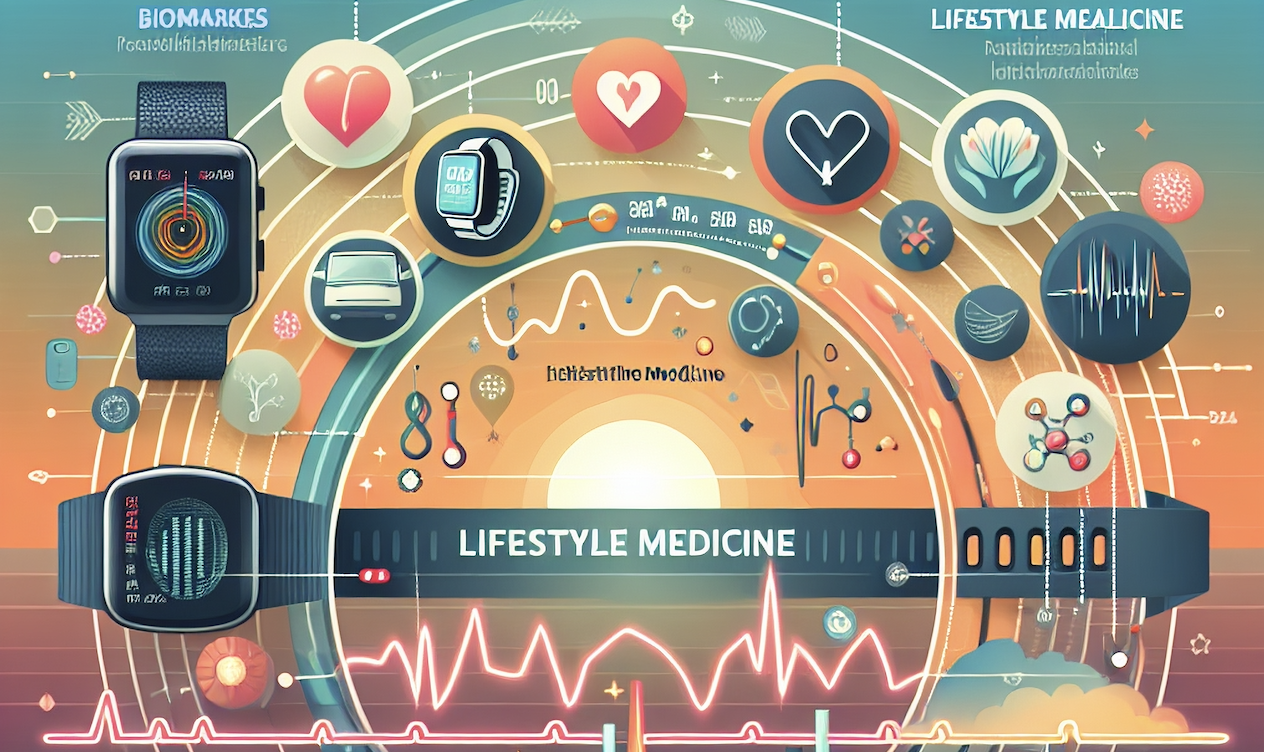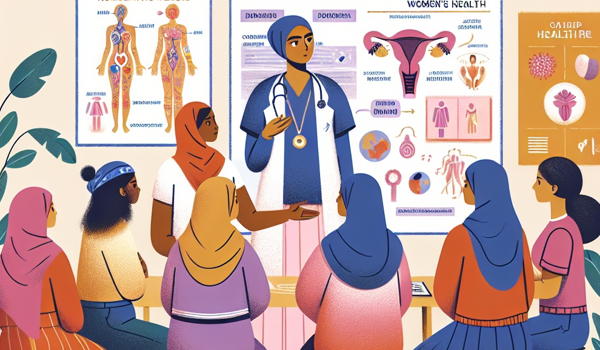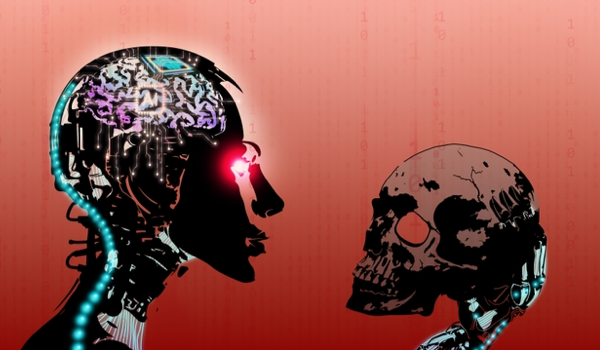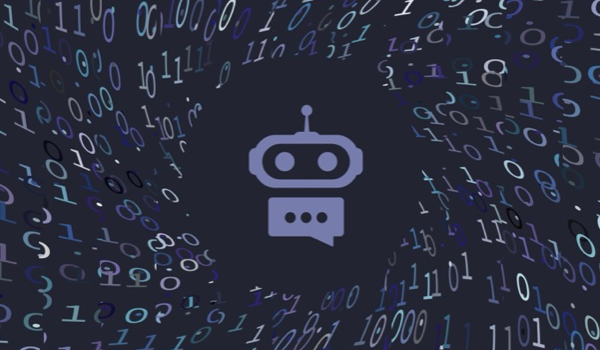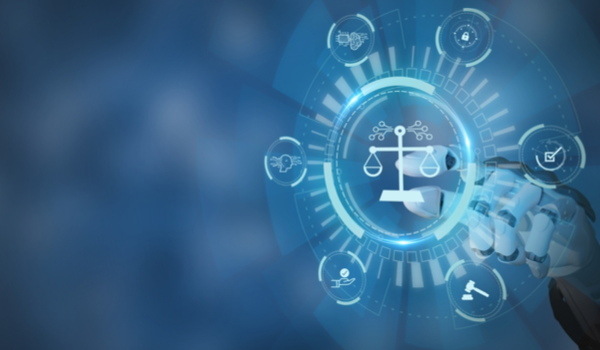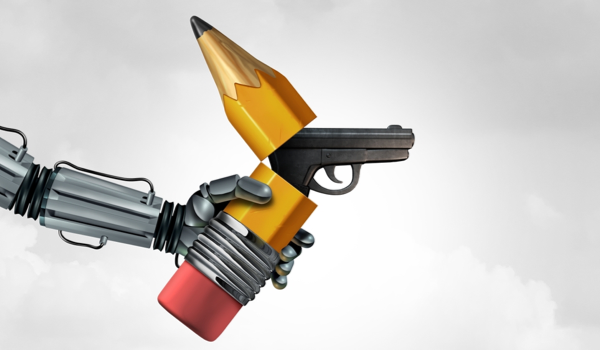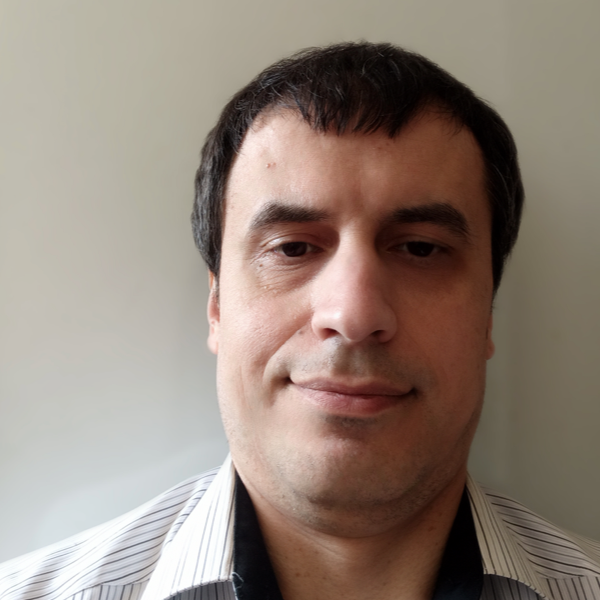The Yuan requests your support!
Our content will now be available free of charge for all registered subscribers, consistent with our mission to make AI a human commons accessible to all.
We are therefore requesting donations from our readers so we may continue bringing you insightful reportage of this awesome technology that is sweeping the world.
Donate now




Women’s healthcare must be taken more seriously to overcome health inequality
By Priya Dialani | Oct 18, 2024
Men and women’s healthcare differs in many respects, and while this should not affect the quality of care, in practice women too often do not get the services they deserve. AI expert and technical writer Priya Dialani illustrates why this is the case in an interview with healthcare entrepreneur Sarah M. Worthy.
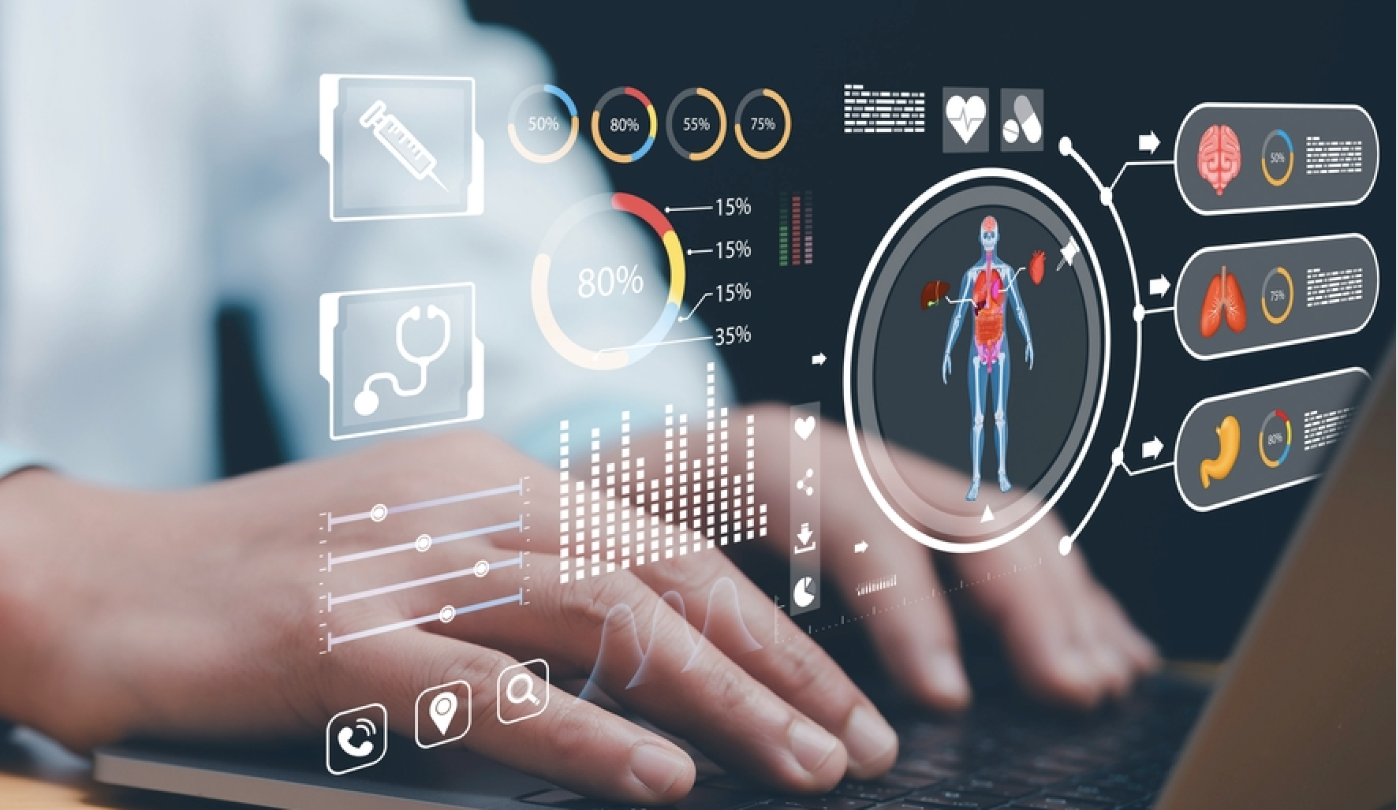 Novel cost-effective AI health screening methods are changing healthcare
Advanced modern medicine often relies on costly techniques that put it out of reach for many. Better preventive care is one of the best ways to reduce these costs, and AI is starting to make this happen, argues digital health specialist and entrepreneur Eduard Musinschi.
Novel cost-effective AI health screening methods are changing healthcare
Advanced modern medicine often relies on costly techniques that put it out of reach for many. Better preventive care is one of the best ways to reduce these costs, and AI is starting to make this happen, argues digital health specialist and entrepreneur Eduard Musinschi.
 The Yuan is proud to announce a partnership with Fast Company China
As The Yuan continues its global expansion and seeks to reach new audiences, its partnership with Fast Company China represents a big step forward in terms of publishing Chinese language content and appealing to more readers in China as well as other Chinese speakers.
The Yuan is proud to announce a partnership with Fast Company China
As The Yuan continues its global expansion and seeks to reach new audiences, its partnership with Fast Company China represents a big step forward in terms of publishing Chinese language content and appealing to more readers in China as well as other Chinese speakers.
 Opportunistic use cases of artificial intelligence in medicine abound
AI is playing an increasingly important role in medicine, though quite often this does not happen as intended. The tech is just as likely to lead to breakthroughs and discoveries in unintended or serendipitous ways, points out AI and ML expert Moein Shariatnia.
Opportunistic use cases of artificial intelligence in medicine abound
AI is playing an increasingly important role in medicine, though quite often this does not happen as intended. The tech is just as likely to lead to breakthroughs and discoveries in unintended or serendipitous ways, points out AI and ML expert Moein Shariatnia.
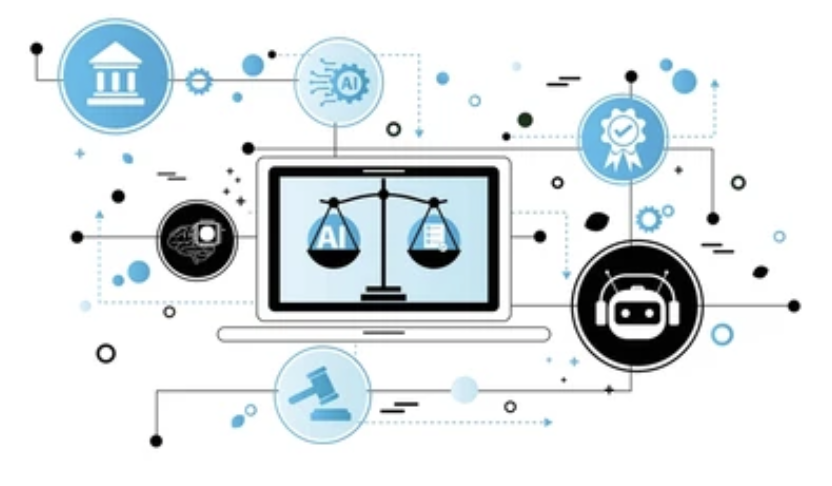 Having a growth mindset is an integral part of effective AI ethics
The adoption of effective AI ethics requires one to adapt to change, take risks, make mistakes, learn from failure, and venture outside of one’s comfort zone, argues Dr Frank Lee Harper, Jr, AI thought leader and provost and vice chancellor at Cambridge Corporate University.
Having a growth mindset is an integral part of effective AI ethics
The adoption of effective AI ethics requires one to adapt to change, take risks, make mistakes, learn from failure, and venture outside of one’s comfort zone, argues Dr Frank Lee Harper, Jr, AI thought leader and provost and vice chancellor at Cambridge Corporate University.
 AI is becoming increasingly indispensable in the field of population health
The study of population health for identifying and understanding larger populations as well as at-risk sub-populations involves huge amounts of data. This means that AI plays an increasingly important role, argues Dr Jennifer Dunphy, senior VP for a top US physician association.
AI is becoming increasingly indispensable in the field of population health
The study of population health for identifying and understanding larger populations as well as at-risk sub-populations involves huge amounts of data. This means that AI plays an increasingly important role, argues Dr Jennifer Dunphy, senior VP for a top US physician association.

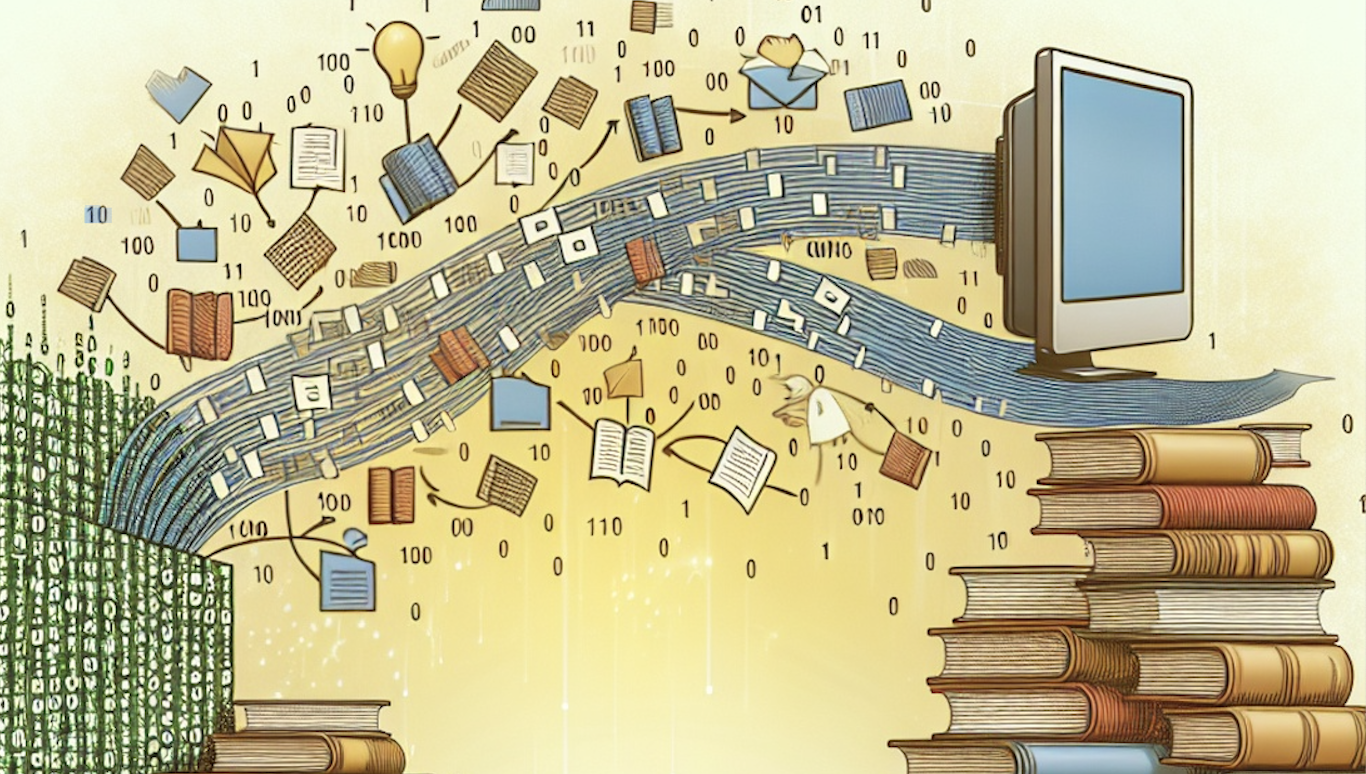
In generative AI, do RAFTs achieve better results than simple RAG?GenAI has grabbed many headlines lately, though the tech is not monolithic. There are different types of frameworks and sub technologies that fall under the GenAI umbrella, with some being more impactful than others, argues Moh Noori, CEO and founder of ScriptChain Health.


AI in DubAI: Dubai is becoming a premier global center for advanced techDubai, one of the world’s most advanced and international cities, also happens to contain ‘AI’ in its name - which is quite fitting given the importance of this futuristic metropolis as a global tech hub. Digital transformation and AI expert Semih Kumluk has more.


 Detecting when an AI model is uncertain of its prediction helps improve it
New AI tools and models are being developed every day, though many of them feature a great deal of uncertainty. Quantifying and detecting this uncertainty goes a long way toward ensuring that AI is more reliable and trustworthy, argues AI and ML expert Moein Shariatnia.
Detecting when an AI model is uncertain of its prediction helps improve it
New AI tools and models are being developed every day, though many of them feature a great deal of uncertainty. Quantifying and detecting this uncertainty goes a long way toward ensuring that AI is more reliable and trustworthy, argues AI and ML expert Moein Shariatnia.
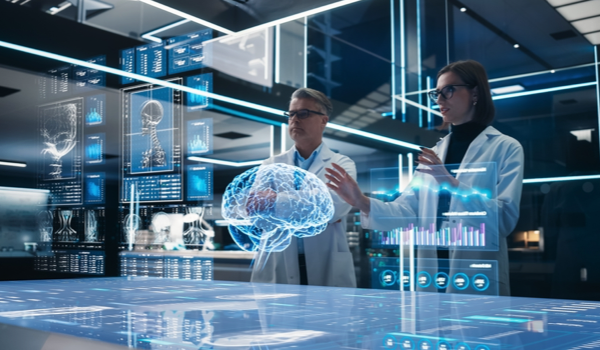 The intersection of AI and healthcare is dynamic and ever evolving
This episode of the Delta Dialog explores the dynamic intersection of AI and healthcare. The Yuan contributor Dr Ahmad Nazzal shares his journey from his early fascination with science and computers to his current work in digital health and AI, particularly in radiology and neuroscience.
The intersection of AI and healthcare is dynamic and ever evolving
This episode of the Delta Dialog explores the dynamic intersection of AI and healthcare. The Yuan contributor Dr Ahmad Nazzal shares his journey from his early fascination with science and computers to his current work in digital health and AI, particularly in radiology and neuroscience.
 Writing, editing AI-related content comes with many challenges
This episode of the Delta Dialog examines the challenges and opportunities of writing and editing AI-related content, the intersection of AI and linguistics, and ethical considerations in AI research from the perspective of Jack Kotin, one of The Yuan's editors..
Writing, editing AI-related content comes with many challenges
This episode of the Delta Dialog examines the challenges and opportunities of writing and editing AI-related content, the intersection of AI and linguistics, and ethical considerations in AI research from the perspective of Jack Kotin, one of The Yuan's editors..


The Yuan favorites

 Generic
Generic
 Opportunistic use cases of artificial intelligence in medicine abound
AI is playing an increasingly important role in medicine, though quite often this does not happen as intended. The tech is just as likely to lead to breakthroughs and discoveries in unintended or serendipitous ways, points out AI and ML expert Moein Shariatnia.
Opportunistic use cases of artificial intelligence in medicine abound
AI is playing an increasingly important role in medicine, though quite often this does not happen as intended. The tech is just as likely to lead to breakthroughs and discoveries in unintended or serendipitous ways, points out AI and ML expert Moein Shariatnia.
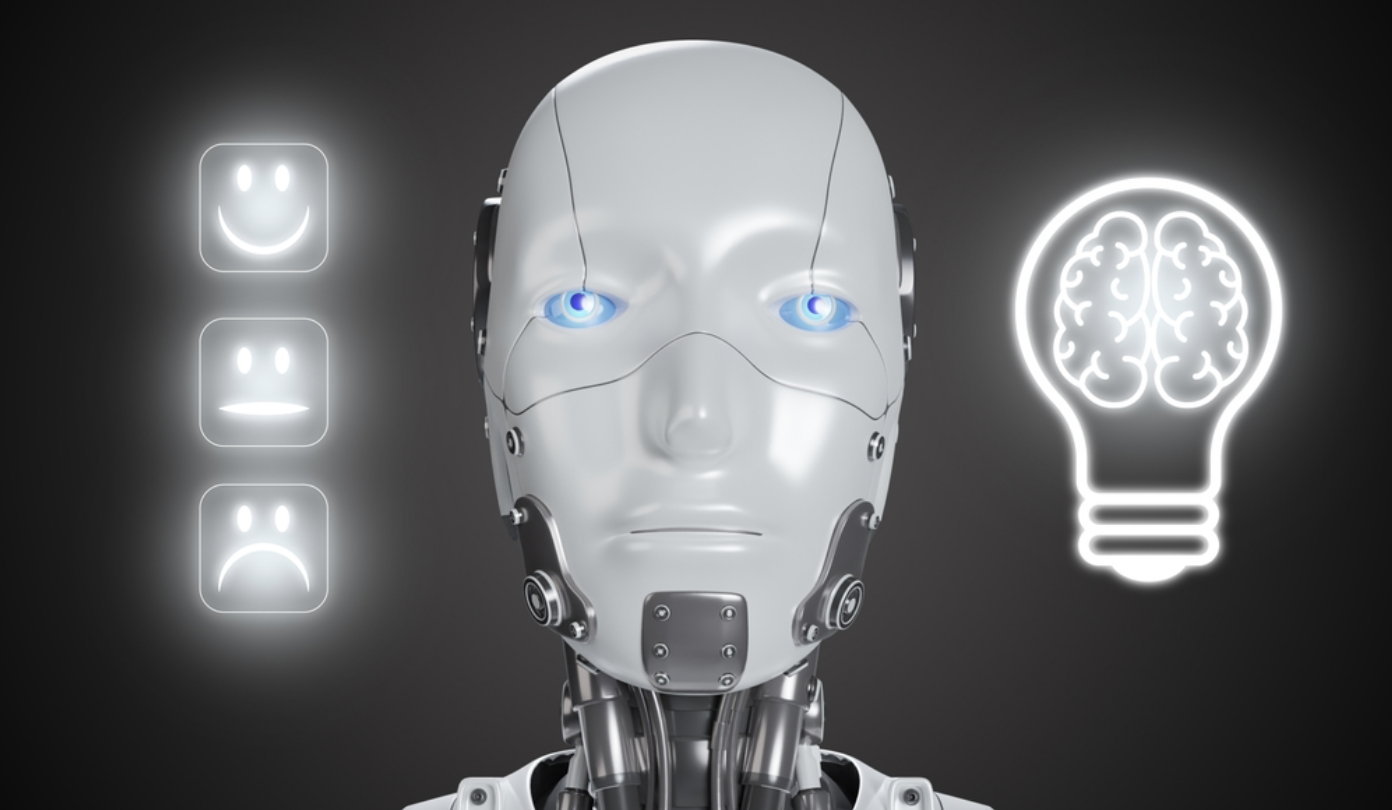 Generic
Generic
 Is AI a tool, a sentient entity, or some combination of the two?
In this episode of the Delta Dialog, The Yuan contributor Tomoko Mitsuoka shares her insights into responsible AI development, the importance of educating the public on AI, and the challenges of balancing technological innovation with social values.
Is AI a tool, a sentient entity, or some combination of the two?
In this episode of the Delta Dialog, The Yuan contributor Tomoko Mitsuoka shares her insights into responsible AI development, the importance of educating the public on AI, and the challenges of balancing technological innovation with social values.
 Generic
Generic
 Views of AI ethics and regulation are influenced by religion and culture
This week’s episode of the Delta Dialog examines AI from a cultural and ethical perspective. Tomoko Mitsuoka, AI ethicist and contributor for The Yuan, shares her unique insights, grounded in both Japanese and Western viewpoints, to explain how different beliefs influence the perception and development of AI.
Views of AI ethics and regulation are influenced by religion and culture
This week’s episode of the Delta Dialog examines AI from a cultural and ethical perspective. Tomoko Mitsuoka, AI ethicist and contributor for The Yuan, shares her unique insights, grounded in both Japanese and Western viewpoints, to explain how different beliefs influence the perception and development of AI.
 Generic
Generic
 AI can be a force for good that powers sustainable development, but how?
For those who fret that AI heralds an apocalyptic end to society in its current form, a powerful counterargument is that society cannot be preserved or improved without AI playing an outsized role. AI expert Simone Castello examines why this is indeed the case.
AI can be a force for good that powers sustainable development, but how?
For those who fret that AI heralds an apocalyptic end to society in its current form, a powerful counterargument is that society cannot be preserved or improved without AI playing an outsized role. AI expert Simone Castello examines why this is indeed the case.
 New era
New era
 The Yuan is proud to announce a partnership with Fast Company China
As The Yuan continues its global expansion and seeks to reach new audiences, its partnership with Fast Company China represents a big step forward in terms of publishing Chinese language content and appealing to more readers in China as well as other Chinese speakers.
The Yuan is proud to announce a partnership with Fast Company China
As The Yuan continues its global expansion and seeks to reach new audiences, its partnership with Fast Company China represents a big step forward in terms of publishing Chinese language content and appealing to more readers in China as well as other Chinese speakers.
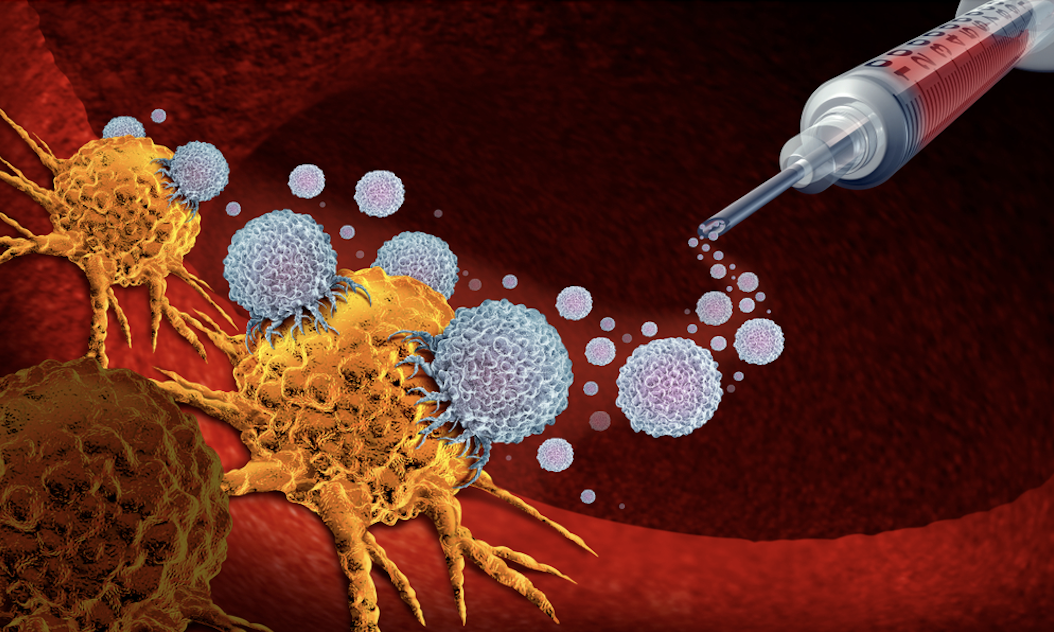 New era
New era
 AI′s role in personalized cancer vaccines heralds a new era in oncology
With the rise of personalized medicine, cancer cures - including preventative vaccines - are closer to being realized than ever. Medical and scientific writer Jacqueline Bersano assesses the current outlook for treating cancer and other seemingly incurable diseases.
AI′s role in personalized cancer vaccines heralds a new era in oncology
With the rise of personalized medicine, cancer cures - including preventative vaccines - are closer to being realized than ever. Medical and scientific writer Jacqueline Bersano assesses the current outlook for treating cancer and other seemingly incurable diseases.
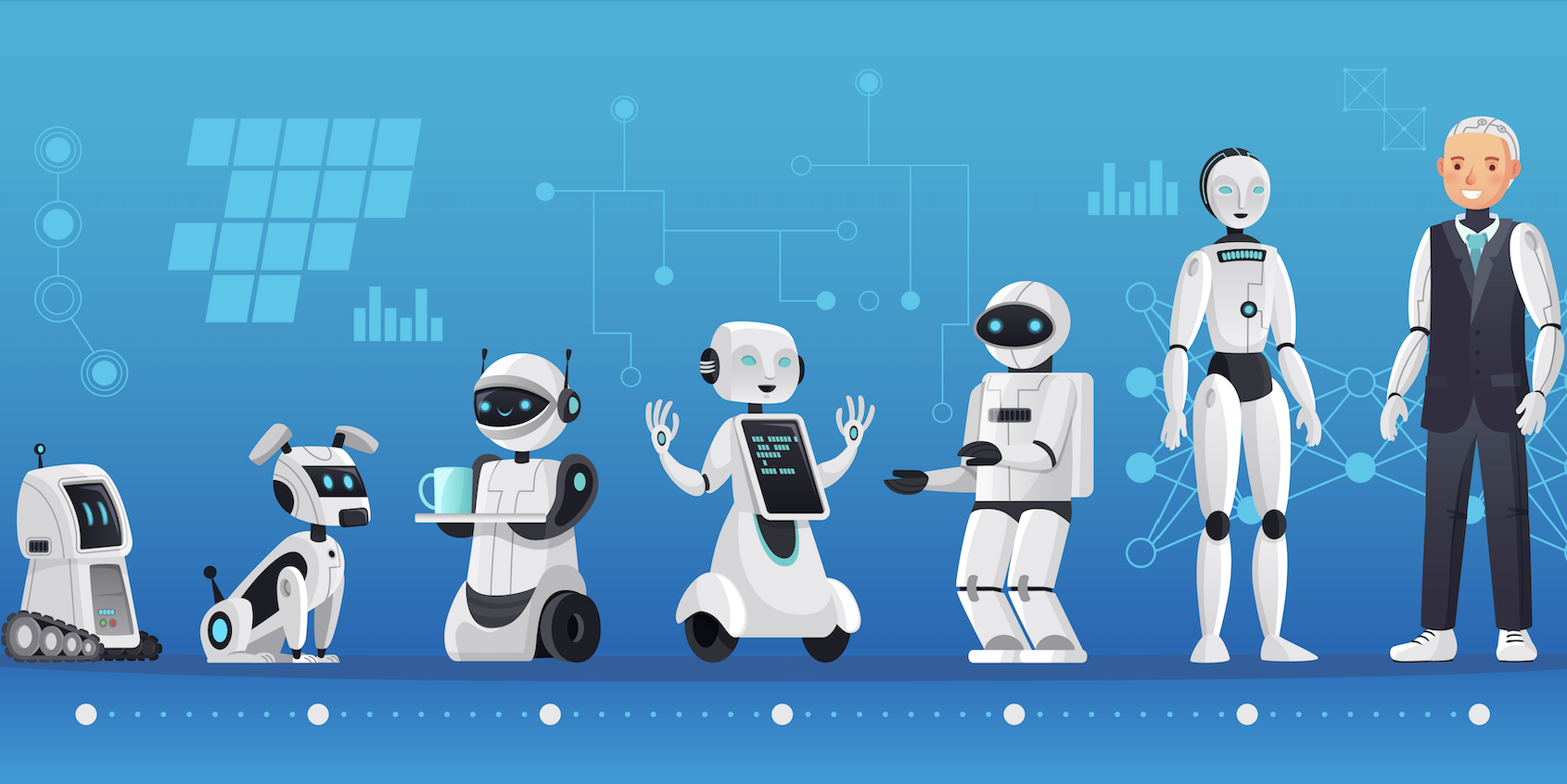 New era
New era
 Relationships with digital companions are becoming more like human ones
AI assistants have been around for some time, but often just as a robotic voice and program only capable of performing a few limited tasks. However, one can now see the line between human relationships and digital companions blurring further, argues AI researcher Marisa Tschopp.
Relationships with digital companions are becoming more like human ones
AI assistants have been around for some time, but often just as a robotic voice and program only capable of performing a few limited tasks. However, one can now see the line between human relationships and digital companions blurring further, argues AI researcher Marisa Tschopp.
 New era
New era
 The Yuan was right: The world is moving towards personal AI assistants
In previous articles, The Yuan has argued that personal and personalized AI would soon grow to become a trillion-dollar business. ChatGPT-4o with voice and Apple’s integration of AI into iOS have proven these predictions correct, argues AI expert Satyen K. Bordoloi.
The Yuan was right: The world is moving towards personal AI assistants
In previous articles, The Yuan has argued that personal and personalized AI would soon grow to become a trillion-dollar business. ChatGPT-4o with voice and Apple’s integration of AI into iOS have proven these predictions correct, argues AI expert Satyen K. Bordoloi.
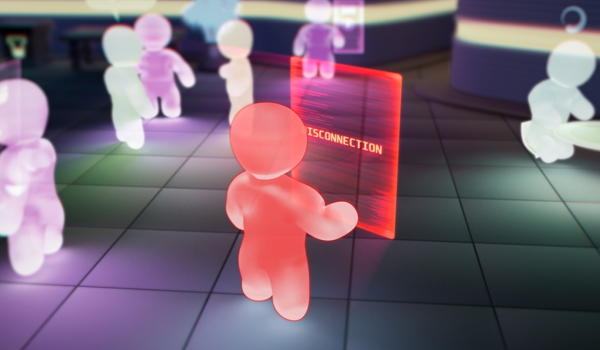 Metaverse
Metaverse
 Has the concept of the metaverse failed, or is it still too early to tell?
This, the fourth in an article series titled Life and Crime in the Metaverse, examines the metaverse today and the question of whether it will ever reach its potential. Some already view it as a failure, but it could just be a steppingstone to something bigger and better.
Has the concept of the metaverse failed, or is it still too early to tell?
This, the fourth in an article series titled Life and Crime in the Metaverse, examines the metaverse today and the question of whether it will ever reach its potential. Some already view it as a failure, but it could just be a steppingstone to something bigger and better.
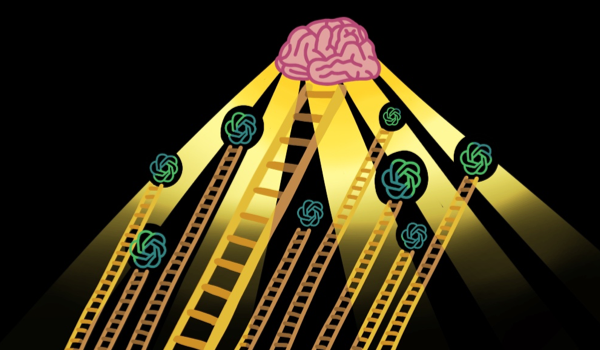 Metaverse
Metaverse
 The Yuan raises the red flag, wards off incursions by GAI chatbots
As GAIs such as ChatGPT find ever-wider use, this exciting development also risks obsoleting many human functions. ‘Singularitarians’ may hail this step, but The Yuan is committed to keeping humans in the loop, and so offers this cautionary tale for our contributors’ edification.
The Yuan raises the red flag, wards off incursions by GAI chatbots
As GAIs such as ChatGPT find ever-wider use, this exciting development also risks obsoleting many human functions. ‘Singularitarians’ may hail this step, but The Yuan is committed to keeping humans in the loop, and so offers this cautionary tale for our contributors’ edification.
 Metaverse
Metaverse
 Life and crime in the metaverse: Trust, trustless, and zero trust
This, the third in an article series titled Life and Crime in the Metaverse, examines the idea of trust, how to engage in online transactions and other interactions in its absence, and what this signifies in the metaverse context.
Life and crime in the metaverse: Trust, trustless, and zero trust
This, the third in an article series titled Life and Crime in the Metaverse, examines the idea of trust, how to engage in online transactions and other interactions in its absence, and what this signifies in the metaverse context.
 Metaverse
Metaverse
 Metaverse healthcare system applications are based on the discovery layer
In the second part of his series of articles on the Metaverse, AI engineer Douglas Amante takes a look at what the discovery layer of the Metaverse is and how healthcare-related applications fit in as they become an increasingly integral part of people’s lives.
Metaverse healthcare system applications are based on the discovery layer
In the second part of his series of articles on the Metaverse, AI engineer Douglas Amante takes a look at what the discovery layer of the Metaverse is and how healthcare-related applications fit in as they become an increasingly integral part of people’s lives.
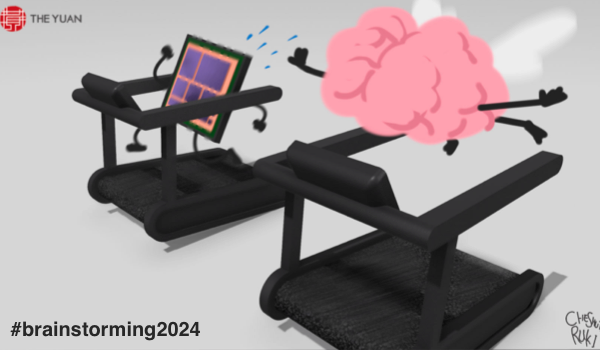 Brain science
Brain science
 Stay tuned for The Yuan’s brain science themed webinar this July!
The Yuan recently ran a three-week series of articles from April 1 to April 19, with topics examining the intersection of neuroscience and AI. The series was a great success and will be followed up in July by a webinar featuring some of the series’ outstanding contributors.
Stay tuned for The Yuan’s brain science themed webinar this July!
The Yuan recently ran a three-week series of articles from April 1 to April 19, with topics examining the intersection of neuroscience and AI. The series was a great success and will be followed up in July by a webinar featuring some of the series’ outstanding contributors.
 Brain science
Brain science
 Neurosymbolic AI injects symbolic reasoning to give DL ‘the human touch’
Neurosymbolic AI is a novel method that empowers DL to reason symbolically, while also bolstering its already renowned ability to ingest and digest reams of data. SEO content creator Ava Addams maps a new route toward more intuitive AI, and forecasts a sea change in the offing.
Neurosymbolic AI injects symbolic reasoning to give DL ‘the human touch’
Neurosymbolic AI is a novel method that empowers DL to reason symbolically, while also bolstering its already renowned ability to ingest and digest reams of data. SEO content creator Ava Addams maps a new route toward more intuitive AI, and forecasts a sea change in the offing.
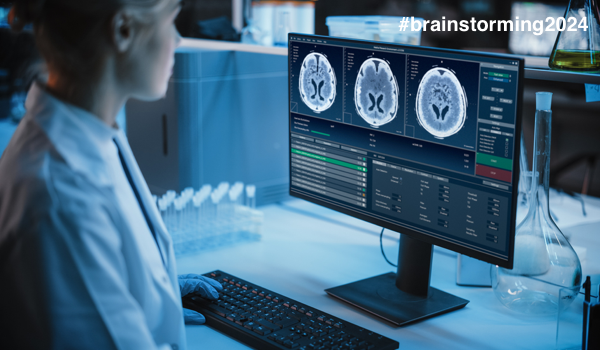 Brain science
Brain science
 Advantis Medical Imaging fuels innovation to redefine healthcare with AI
The Yuan recently spoke with Zoi Giavri, co-founder, president and chief product officer of leading medical software developer Advantis Medical Imaging to talk advances in healthcare. Eleni Natsi, a journalist focused on the transformative impact of AI, lets us in on their tête-à-tête.
Advantis Medical Imaging fuels innovation to redefine healthcare with AI
The Yuan recently spoke with Zoi Giavri, co-founder, president and chief product officer of leading medical software developer Advantis Medical Imaging to talk advances in healthcare. Eleni Natsi, a journalist focused on the transformative impact of AI, lets us in on their tête-à-tête.
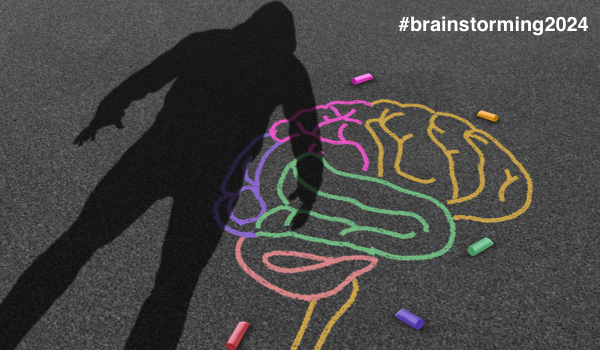 Brain science
Brain science
 GenAI offers a peek into the future of empathetic care in neuropsychiatry
Neuropsychiatric disorders are often difficult to treat because each patient’s case is unique and there are few, if any, other comparable cases to use as references. Fortunately, GenAI, a new tech, is now changing this outlook, argues Harvard Med Fellow Rohitashva Agrawal, MD,MPH.
GenAI offers a peek into the future of empathetic care in neuropsychiatry
Neuropsychiatric disorders are often difficult to treat because each patient’s case is unique and there are few, if any, other comparable cases to use as references. Fortunately, GenAI, a new tech, is now changing this outlook, argues Harvard Med Fellow Rohitashva Agrawal, MD,MPH.
 Optimization
Optimization
 Are AI solutions in healthcare cost-effective and financially viable?
A common complaint about AI in healthcare is that the tech is inefficient and too costly for widespread implementation. Radiologist and medical executive Gustavo Meirelles takes a closer look at how AI is already transforming the industry, as well as its promise going forward.
Are AI solutions in healthcare cost-effective and financially viable?
A common complaint about AI in healthcare is that the tech is inefficient and too costly for widespread implementation. Radiologist and medical executive Gustavo Meirelles takes a closer look at how AI is already transforming the industry, as well as its promise going forward.
 Optimization
Optimization
 Genome of Greece is a paradigm for large-scale genomic medicine projects
The integration of genomics is crucial for healthcare to become more personalized, and the Genome of Greece initiative is helping do just that, writes Pharmacogenomics and Pharmaceutical Biotech Prof George P. Patrinos, of the University of Patras, Greece.
Genome of Greece is a paradigm for large-scale genomic medicine projects
The integration of genomics is crucial for healthcare to become more personalized, and the Genome of Greece initiative is helping do just that, writes Pharmacogenomics and Pharmaceutical Biotech Prof George P. Patrinos, of the University of Patras, Greece.
 Optimization
Optimization
 Data, infrastructure barriers hamper AI's cure of Africa's healthcare woes
Africa will gain the most from AI’s activation in healthcare, but the road to fulfilling this vision is a rocky one. Fulbright Scholar Ahmed Zahlan, who is pursuing his PhD in AI healthcare startups, charts the path the second most populous continent must take to reach this goal.
Data, infrastructure barriers hamper AI's cure of Africa's healthcare woes
Africa will gain the most from AI’s activation in healthcare, but the road to fulfilling this vision is a rocky one. Fulbright Scholar Ahmed Zahlan, who is pursuing his PhD in AI healthcare startups, charts the path the second most populous continent must take to reach this goal.
 Optimization
Optimization
 AI’s impact on the music business is great, but greatly underappreciated
Many people are au courant with the transformative effect AI is having on the healthcare, banking, and robotics industries, but far fewer are aware of its splash in the realm of music. AI expert Snigdha Bose probes this stealth phenomenon and signals its future import.
AI’s impact on the music business is great, but greatly underappreciated
Many people are au courant with the transformative effect AI is having on the healthcare, banking, and robotics industries, but far fewer are aware of its splash in the realm of music. AI expert Snigdha Bose probes this stealth phenomenon and signals its future import.
 Governance
Governance
 Having a growth mindset is an integral part of effective AI ethics
The adoption of effective AI ethics requires one to adapt to change, take risks, make mistakes, learn from failure, and venture outside of one’s comfort zone, argues Dr Frank Lee Harper, Jr, AI thought leader and provost and vice chancellor at Cambridge Corporate University.
Having a growth mindset is an integral part of effective AI ethics
The adoption of effective AI ethics requires one to adapt to change, take risks, make mistakes, learn from failure, and venture outside of one’s comfort zone, argues Dr Frank Lee Harper, Jr, AI thought leader and provost and vice chancellor at Cambridge Corporate University.
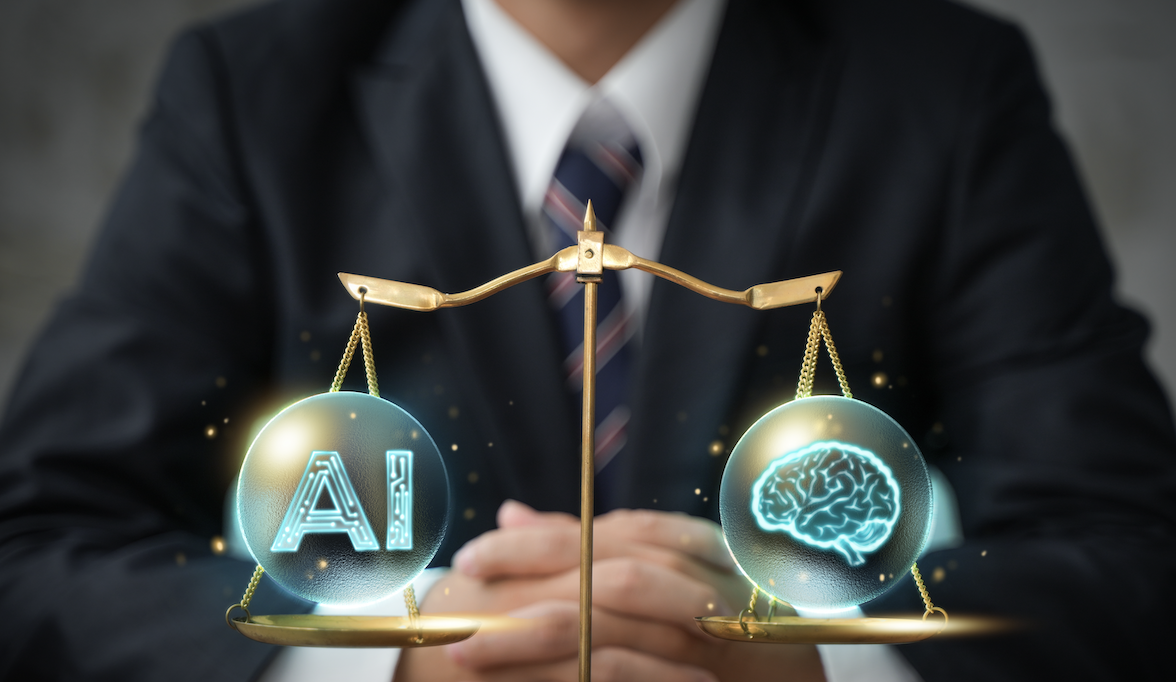 Governance
Governance
 If AI governance is to be successful, AI assurance must play a key role
AI assurance verifies whether or not AI systems comply with legal rules and regulations. While a legal framework governing the use of AI makes sense, such a regime must be enforceable to make a real difference, argues AI writer and entrepreneur Ana Chubinidze.
If AI governance is to be successful, AI assurance must play a key role
AI assurance verifies whether or not AI systems comply with legal rules and regulations. While a legal framework governing the use of AI makes sense, such a regime must be enforceable to make a real difference, argues AI writer and entrepreneur Ana Chubinidze.
 Governance
Governance
 AI may be default ‘kingmaker’ this year in biggest-ever worldwide elections
While AI’s presence in elections has some benefits, such as connecting with voters, these are vastly outweighed by drawbacks such as widespread disinformation. Governments and AI companies are also not doing enough to combat the problem, argues The Yuan’s contributor Ben Armour.
AI may be default ‘kingmaker’ this year in biggest-ever worldwide elections
While AI’s presence in elections has some benefits, such as connecting with voters, these are vastly outweighed by drawbacks such as widespread disinformation. Governments and AI companies are also not doing enough to combat the problem, argues The Yuan’s contributor Ben Armour.
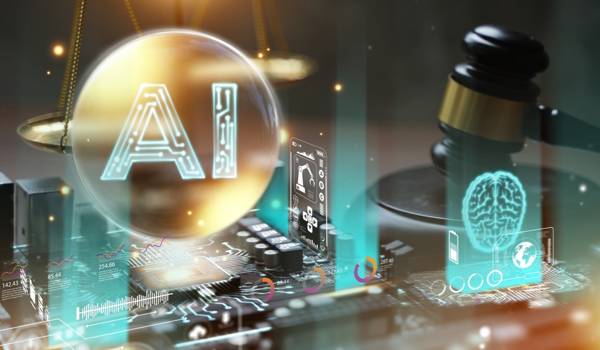 Governance
Governance
 Prof Robert Skidelsky shares thoughts on Keynes, AI, and the future of work
The Yuan recently sat down with Robert Skidelsky, a member of the British House of Lords and Professor Emeritus of Political Economy at Warwick University, for his thoughts on some of the world’s most pressing issues, including the future of AI, work, government policy, and more.
Prof Robert Skidelsky shares thoughts on Keynes, AI, and the future of work
The Yuan recently sat down with Robert Skidelsky, a member of the British House of Lords and Professor Emeritus of Political Economy at Warwick University, for his thoughts on some of the world’s most pressing issues, including the future of AI, work, government policy, and more.
 The Yuan AI 2023: A year when health innovation is set to mature and consolidate
As 2023 gets underway, AI-related innovation in health tech companies is likely to be as affected by war, inflation, energy shortages, and available funding as by tech advances. Consolidation is likely, which may reduce competition, though even if trendy startups and eye-catching but risky ventures struggle, ‘boring’ innovation that often flies under the radar will continue to rack up successes. Harvard fellow Dr Rohitashva Agrawal explains.
The Yuan AI 2023: A year when health innovation is set to mature and consolidate
As 2023 gets underway, AI-related innovation in health tech companies is likely to be as affected by war, inflation, energy shortages, and available funding as by tech advances. Consolidation is likely, which may reduce competition, though even if trendy startups and eye-catching but risky ventures struggle, ‘boring’ innovation that often flies under the radar will continue to rack up successes. Harvard fellow Dr Rohitashva Agrawal explains.
 DL boosts India’s drug development - part 1
India has long been a hub of pharmaceutical development and production and many Indian startups in this domain have lately turned to technology - especially AI and ML - to cut the time, cost, and effort needed to develop new drugs and gain approval for their use, which formerly took many years.
DL boosts India’s drug development - part 1
India has long been a hub of pharmaceutical development and production and many Indian startups in this domain have lately turned to technology - especially AI and ML - to cut the time, cost, and effort needed to develop new drugs and gain approval for their use, which formerly took many years.
 The next trillion-dollar business: personal AI assistants - part 1
Seldom in the swiftly evolving tech world does one get to say: ‘I told you so.’ With Dall-E, LaMDA, ChatGPT-type AI systems in 2022, The Yuan contributor Satyen K. Bordoloi says just that as - in a three-part series - he outlines how AI personal assistants will storm and transform the world, leading to the next trillion-dollar business.
The next trillion-dollar business: personal AI assistants - part 1
Seldom in the swiftly evolving tech world does one get to say: ‘I told you so.’ With Dall-E, LaMDA, ChatGPT-type AI systems in 2022, The Yuan contributor Satyen K. Bordoloi says just that as - in a three-part series - he outlines how AI personal assistants will storm and transform the world, leading to the next trillion-dollar business.
 The next trillion-dollar business: personal AI assistants - part 2
The first article in this series was on how the success of ChatGPT indicates personal AI assistants are the next wave. This part discusses the difficulties of making a PAI assistant, means to overcome these obstacles, and why self-driving carmakers must jump on the PAI bandwagon.
The next trillion-dollar business: personal AI assistants - part 2
The first article in this series was on how the success of ChatGPT indicates personal AI assistants are the next wave. This part discusses the difficulties of making a PAI assistant, means to overcome these obstacles, and why self-driving carmakers must jump on the PAI bandwagon.
 The Yuan AI 2023: DL to loom large in future AI in healthcare
Deep learning technologies are revolutionizing the diagnosis and prognosis of complicated diseases and cancer. Intelligent medical diagnosis expert Dr Sara Moein predicts the role of AI in 2023 in medical diagnosis and healthcare.
The Yuan AI 2023: DL to loom large in future AI in healthcare
Deep learning technologies are revolutionizing the diagnosis and prognosis of complicated diseases and cancer. Intelligent medical diagnosis expert Dr Sara Moein predicts the role of AI in 2023 in medical diagnosis and healthcare.
 AI will never outwit humans because it is no ‘smarter’ than an abacus is
Ancient Greeks used a marked table - abax - to calculate, but the true ‘abacus’ is a 5,000-year-old Babylonian invention diffused to the rest of the world. On day 13 of our intelligent discovery quest, writing from the East-West trade hub of Mumbai, The Yuan columnist Satyen K. Bordoloi likens seeing smartness in AI to ascribing sentience to an abacus.
Delta dialog
AI will never outwit humans because it is no ‘smarter’ than an abacus is
Ancient Greeks used a marked table - abax - to calculate, but the true ‘abacus’ is a 5,000-year-old Babylonian invention diffused to the rest of the world. On day 13 of our intelligent discovery quest, writing from the East-West trade hub of Mumbai, The Yuan columnist Satyen K. Bordoloi likens seeing smartness in AI to ascribing sentience to an abacus.
Delta dialog
 Community
Community



 Opportunistic use cases of artificial intelligence in medicine abound
AI is playing an increasingly important role in medicine, though quite often this does not happen as intended. The tech is just as likely to lead to breakthroughs and discoveries in unintended or serendipitous ways, points out AI and ML expert Moein Shariatnia.
Opportunistic use cases of artificial intelligence in medicine abound
AI is playing an increasingly important role in medicine, though quite often this does not happen as intended. The tech is just as likely to lead to breakthroughs and discoveries in unintended or serendipitous ways, points out AI and ML expert Moein Shariatnia.
|
Sep 30, 2024

 Is AI a tool, a sentient entity, or some combination of the two?
In this episode of the Delta Dialog, The Yuan contributor Tomoko Mitsuoka shares her insights into responsible AI development, the importance of educating the public on AI, and the challenges of balancing technological innovation with social values.
Is AI a tool, a sentient entity, or some combination of the two?
In this episode of the Delta Dialog, The Yuan contributor Tomoko Mitsuoka shares her insights into responsible AI development, the importance of educating the public on AI, and the challenges of balancing technological innovation with social values.
|
Sep 05, 2024

 Views of AI ethics and regulation are influenced by religion and culture
This week’s episode of the Delta Dialog examines AI from a cultural and ethical perspective. Tomoko Mitsuoka, AI ethicist and contributor for The Yuan, shares her unique insights, grounded in both Japanese and Western viewpoints, to explain how different beliefs influence the perception and development of AI.
Views of AI ethics and regulation are influenced by religion and culture
This week’s episode of the Delta Dialog examines AI from a cultural and ethical perspective. Tomoko Mitsuoka, AI ethicist and contributor for The Yuan, shares her unique insights, grounded in both Japanese and Western viewpoints, to explain how different beliefs influence the perception and development of AI.
|
Aug 29, 2024

 AI can be a force for good that powers sustainable development, but how?
For those who fret that AI heralds an apocalyptic end to society in its current form, a powerful counterargument is that society cannot be preserved or improved without AI playing an outsized role. AI expert Simone Castello examines why this is indeed the case.
AI can be a force for good that powers sustainable development, but how?
For those who fret that AI heralds an apocalyptic end to society in its current form, a powerful counterargument is that society cannot be preserved or improved without AI playing an outsized role. AI expert Simone Castello examines why this is indeed the case.
|
Aug 14, 2024

 The Yuan is proud to announce a partnership with Fast Company China
As The Yuan continues its global expansion and seeks to reach new audiences, its partnership with Fast Company China represents a big step forward in terms of publishing Chinese language content and appealing to more readers in China as well as other Chinese speakers.
The Yuan is proud to announce a partnership with Fast Company China
As The Yuan continues its global expansion and seeks to reach new audiences, its partnership with Fast Company China represents a big step forward in terms of publishing Chinese language content and appealing to more readers in China as well as other Chinese speakers.
|
Oct 01, 2024

 AI′s role in personalized cancer vaccines heralds a new era in oncology
With the rise of personalized medicine, cancer cures - including preventative vaccines - are closer to being realized than ever. Medical and scientific writer Jacqueline Bersano assesses the current outlook for treating cancer and other seemingly incurable diseases.
AI′s role in personalized cancer vaccines heralds a new era in oncology
With the rise of personalized medicine, cancer cures - including preventative vaccines - are closer to being realized than ever. Medical and scientific writer Jacqueline Bersano assesses the current outlook for treating cancer and other seemingly incurable diseases.
|
Sep 17, 2024

 Relationships with digital companions are becoming more like human ones
AI assistants have been around for some time, but often just as a robotic voice and program only capable of performing a few limited tasks. However, one can now see the line between human relationships and digital companions blurring further, argues AI researcher Marisa Tschopp.
Relationships with digital companions are becoming more like human ones
AI assistants have been around for some time, but often just as a robotic voice and program only capable of performing a few limited tasks. However, one can now see the line between human relationships and digital companions blurring further, argues AI researcher Marisa Tschopp.
|
Aug 23, 2024

 The Yuan was right: The world is moving towards personal AI assistants
In previous articles, The Yuan has argued that personal and personalized AI would soon grow to become a trillion-dollar business. ChatGPT-4o with voice and Apple’s integration of AI into iOS have proven these predictions correct, argues AI expert Satyen K. Bordoloi.
The Yuan was right: The world is moving towards personal AI assistants
In previous articles, The Yuan has argued that personal and personalized AI would soon grow to become a trillion-dollar business. ChatGPT-4o with voice and Apple’s integration of AI into iOS have proven these predictions correct, argues AI expert Satyen K. Bordoloi.
|
Jul 17, 2024

 Has the concept of the metaverse failed, or is it still too early to tell?
This, the fourth in an article series titled Life and Crime in the Metaverse, examines the metaverse today and the question of whether it will ever reach its potential. Some already view it as a failure, but it could just be a steppingstone to something bigger and better.
Has the concept of the metaverse failed, or is it still too early to tell?
This, the fourth in an article series titled Life and Crime in the Metaverse, examines the metaverse today and the question of whether it will ever reach its potential. Some already view it as a failure, but it could just be a steppingstone to something bigger and better.
|
Aug 07, 2023

 The Yuan raises the red flag, wards off incursions by GAI chatbots
As GAIs such as ChatGPT find ever-wider use, this exciting development also risks obsoleting many human functions. ‘Singularitarians’ may hail this step, but The Yuan is committed to keeping humans in the loop, and so offers this cautionary tale for our contributors’ edification.
The Yuan raises the red flag, wards off incursions by GAI chatbots
As GAIs such as ChatGPT find ever-wider use, this exciting development also risks obsoleting many human functions. ‘Singularitarians’ may hail this step, but The Yuan is committed to keeping humans in the loop, and so offers this cautionary tale for our contributors’ edification.
|
Jun 09, 2023

 Life and crime in the metaverse: Trust, trustless, and zero trust
This, the third in an article series titled Life and Crime in the Metaverse, examines the idea of trust, how to engage in online transactions and other interactions in its absence, and what this signifies in the metaverse context.
Life and crime in the metaverse: Trust, trustless, and zero trust
This, the third in an article series titled Life and Crime in the Metaverse, examines the idea of trust, how to engage in online transactions and other interactions in its absence, and what this signifies in the metaverse context.
|
Jun 02, 2023

 Metaverse healthcare system applications are based on the discovery layer
In the second part of his series of articles on the Metaverse, AI engineer Douglas Amante takes a look at what the discovery layer of the Metaverse is and how healthcare-related applications fit in as they become an increasingly integral part of people’s lives.
Metaverse healthcare system applications are based on the discovery layer
In the second part of his series of articles on the Metaverse, AI engineer Douglas Amante takes a look at what the discovery layer of the Metaverse is and how healthcare-related applications fit in as they become an increasingly integral part of people’s lives.
|
May 30, 2023

 Stay tuned for The Yuan’s brain science themed webinar this July!
The Yuan recently ran a three-week series of articles from April 1 to April 19, with topics examining the intersection of neuroscience and AI. The series was a great success and will be followed up in July by a webinar featuring some of the series’ outstanding contributors.
Stay tuned for The Yuan’s brain science themed webinar this July!
The Yuan recently ran a three-week series of articles from April 1 to April 19, with topics examining the intersection of neuroscience and AI. The series was a great success and will be followed up in July by a webinar featuring some of the series’ outstanding contributors.
|
Apr 29, 2024

 Neurosymbolic AI injects symbolic reasoning to give DL ‘the human touch’
Neurosymbolic AI is a novel method that empowers DL to reason symbolically, while also bolstering its already renowned ability to ingest and digest reams of data. SEO content creator Ava Addams maps a new route toward more intuitive AI, and forecasts a sea change in the offing.
Neurosymbolic AI injects symbolic reasoning to give DL ‘the human touch’
Neurosymbolic AI is a novel method that empowers DL to reason symbolically, while also bolstering its already renowned ability to ingest and digest reams of data. SEO content creator Ava Addams maps a new route toward more intuitive AI, and forecasts a sea change in the offing.
|
Apr 19, 2024

 Advantis Medical Imaging fuels innovation to redefine healthcare with AI
The Yuan recently spoke with Zoi Giavri, co-founder, president and chief product officer of leading medical software developer Advantis Medical Imaging to talk advances in healthcare. Eleni Natsi, a journalist focused on the transformative impact of AI, lets us in on their tête-à-tête.
Advantis Medical Imaging fuels innovation to redefine healthcare with AI
The Yuan recently spoke with Zoi Giavri, co-founder, president and chief product officer of leading medical software developer Advantis Medical Imaging to talk advances in healthcare. Eleni Natsi, a journalist focused on the transformative impact of AI, lets us in on their tête-à-tête.
|
Apr 18, 2024

 GenAI offers a peek into the future of empathetic care in neuropsychiatry
Neuropsychiatric disorders are often difficult to treat because each patient’s case is unique and there are few, if any, other comparable cases to use as references. Fortunately, GenAI, a new tech, is now changing this outlook, argues Harvard Med Fellow Rohitashva Agrawal, MD,MPH.
GenAI offers a peek into the future of empathetic care in neuropsychiatry
Neuropsychiatric disorders are often difficult to treat because each patient’s case is unique and there are few, if any, other comparable cases to use as references. Fortunately, GenAI, a new tech, is now changing this outlook, argues Harvard Med Fellow Rohitashva Agrawal, MD,MPH.
|
Apr 17, 2024

 Are AI solutions in healthcare cost-effective and financially viable?
A common complaint about AI in healthcare is that the tech is inefficient and too costly for widespread implementation. Radiologist and medical executive Gustavo Meirelles takes a closer look at how AI is already transforming the industry, as well as its promise going forward.
Are AI solutions in healthcare cost-effective and financially viable?
A common complaint about AI in healthcare is that the tech is inefficient and too costly for widespread implementation. Radiologist and medical executive Gustavo Meirelles takes a closer look at how AI is already transforming the industry, as well as its promise going forward.
|
Jul 25, 2024

 Genome of Greece is a paradigm for large-scale genomic medicine projects
The integration of genomics is crucial for healthcare to become more personalized, and the Genome of Greece initiative is helping do just that, writes Pharmacogenomics and Pharmaceutical Biotech Prof George P. Patrinos, of the University of Patras, Greece.
Genome of Greece is a paradigm for large-scale genomic medicine projects
The integration of genomics is crucial for healthcare to become more personalized, and the Genome of Greece initiative is helping do just that, writes Pharmacogenomics and Pharmaceutical Biotech Prof George P. Patrinos, of the University of Patras, Greece.
|
May 15, 2024

 Data, infrastructure barriers hamper AI's cure of Africa's healthcare woes
Africa will gain the most from AI’s activation in healthcare, but the road to fulfilling this vision is a rocky one. Fulbright Scholar Ahmed Zahlan, who is pursuing his PhD in AI healthcare startups, charts the path the second most populous continent must take to reach this goal.
Data, infrastructure barriers hamper AI's cure of Africa's healthcare woes
Africa will gain the most from AI’s activation in healthcare, but the road to fulfilling this vision is a rocky one. Fulbright Scholar Ahmed Zahlan, who is pursuing his PhD in AI healthcare startups, charts the path the second most populous continent must take to reach this goal.
|
May 08, 2024

 AI’s impact on the music business is great, but greatly underappreciated
Many people are au courant with the transformative effect AI is having on the healthcare, banking, and robotics industries, but far fewer are aware of its splash in the realm of music. AI expert Snigdha Bose probes this stealth phenomenon and signals its future import.
AI’s impact on the music business is great, but greatly underappreciated
Many people are au courant with the transformative effect AI is having on the healthcare, banking, and robotics industries, but far fewer are aware of its splash in the realm of music. AI expert Snigdha Bose probes this stealth phenomenon and signals its future import.
|
Apr 24, 2024

 Having a growth mindset is an integral part of effective AI ethics
The adoption of effective AI ethics requires one to adapt to change, take risks, make mistakes, learn from failure, and venture outside of one’s comfort zone, argues Dr Frank Lee Harper, Jr, AI thought leader and provost and vice chancellor at Cambridge Corporate University.
Having a growth mindset is an integral part of effective AI ethics
The adoption of effective AI ethics requires one to adapt to change, take risks, make mistakes, learn from failure, and venture outside of one’s comfort zone, argues Dr Frank Lee Harper, Jr, AI thought leader and provost and vice chancellor at Cambridge Corporate University.
|
Sep 27, 2024

 If AI governance is to be successful, AI assurance must play a key role
AI assurance verifies whether or not AI systems comply with legal rules and regulations. While a legal framework governing the use of AI makes sense, such a regime must be enforceable to make a real difference, argues AI writer and entrepreneur Ana Chubinidze.
If AI governance is to be successful, AI assurance must play a key role
AI assurance verifies whether or not AI systems comply with legal rules and regulations. While a legal framework governing the use of AI makes sense, such a regime must be enforceable to make a real difference, argues AI writer and entrepreneur Ana Chubinidze.
|
Aug 30, 2024

 AI may be default ‘kingmaker’ this year in biggest-ever worldwide elections
While AI’s presence in elections has some benefits, such as connecting with voters, these are vastly outweighed by drawbacks such as widespread disinformation. Governments and AI companies are also not doing enough to combat the problem, argues The Yuan’s contributor Ben Armour.
AI may be default ‘kingmaker’ this year in biggest-ever worldwide elections
While AI’s presence in elections has some benefits, such as connecting with voters, these are vastly outweighed by drawbacks such as widespread disinformation. Governments and AI companies are also not doing enough to combat the problem, argues The Yuan’s contributor Ben Armour.
|
Jun 13, 2024

 Prof Robert Skidelsky shares thoughts on Keynes, AI, and the future of work
The Yuan recently sat down with Robert Skidelsky, a member of the British House of Lords and Professor Emeritus of Political Economy at Warwick University, for his thoughts on some of the world’s most pressing issues, including the future of AI, work, government policy, and more.
Prof Robert Skidelsky shares thoughts on Keynes, AI, and the future of work
The Yuan recently sat down with Robert Skidelsky, a member of the British House of Lords and Professor Emeritus of Political Economy at Warwick University, for his thoughts on some of the world’s most pressing issues, including the future of AI, work, government policy, and more.
|
May 28, 2024
Special reports
 The Yuan AI 2023: A year when health innovation is set to mature and consolidate
As 2023 gets underway, AI-related innovation in health tech companies is likely to be as affected by war, inflation, energy shortages, and available funding as by tech advances. Consolidation is likely, which may reduce competition, though even if trendy startups and eye-catching but risky ventures struggle, ‘boring’ innovation that often flies under the radar will continue to rack up successes. Harvard fellow Dr Rohitashva Agrawal explains.
The Yuan AI 2023: A year when health innovation is set to mature and consolidate
As 2023 gets underway, AI-related innovation in health tech companies is likely to be as affected by war, inflation, energy shortages, and available funding as by tech advances. Consolidation is likely, which may reduce competition, though even if trendy startups and eye-catching but risky ventures struggle, ‘boring’ innovation that often flies under the radar will continue to rack up successes. Harvard fellow Dr Rohitashva Agrawal explains.
 DL boosts India’s drug development - part 1
India has long been a hub of pharmaceutical development and production and many Indian startups in this domain have lately turned to technology - especially AI and ML - to cut the time, cost, and effort needed to develop new drugs and gain approval for their use, which formerly took many years.
DL boosts India’s drug development - part 1
India has long been a hub of pharmaceutical development and production and many Indian startups in this domain have lately turned to technology - especially AI and ML - to cut the time, cost, and effort needed to develop new drugs and gain approval for their use, which formerly took many years.
 The next trillion-dollar business: personal AI assistants - part 1
Seldom in the swiftly evolving tech world does one get to say: ‘I told you so.’ With Dall-E, LaMDA, ChatGPT-type AI systems in 2022, The Yuan contributor Satyen K. Bordoloi says just that as - in a three-part series - he outlines how AI personal assistants will storm and transform the world, leading to the next trillion-dollar business.
The next trillion-dollar business: personal AI assistants - part 1
Seldom in the swiftly evolving tech world does one get to say: ‘I told you so.’ With Dall-E, LaMDA, ChatGPT-type AI systems in 2022, The Yuan contributor Satyen K. Bordoloi says just that as - in a three-part series - he outlines how AI personal assistants will storm and transform the world, leading to the next trillion-dollar business.
 The next trillion-dollar business: personal AI assistants - part 2
The first article in this series was on how the success of ChatGPT indicates personal AI assistants are the next wave. This part discusses the difficulties of making a PAI assistant, means to overcome these obstacles, and why self-driving carmakers must jump on the PAI bandwagon.
The next trillion-dollar business: personal AI assistants - part 2
The first article in this series was on how the success of ChatGPT indicates personal AI assistants are the next wave. This part discusses the difficulties of making a PAI assistant, means to overcome these obstacles, and why self-driving carmakers must jump on the PAI bandwagon.
 The Yuan AI 2023: DL to loom large in future AI in healthcare
Deep learning technologies are revolutionizing the diagnosis and prognosis of complicated diseases and cancer. Intelligent medical diagnosis expert Dr Sara Moein predicts the role of AI in 2023 in medical diagnosis and healthcare.
The Yuan AI 2023: DL to loom large in future AI in healthcare
Deep learning technologies are revolutionizing the diagnosis and prognosis of complicated diseases and cancer. Intelligent medical diagnosis expert Dr Sara Moein predicts the role of AI in 2023 in medical diagnosis and healthcare.
 AI will never outwit humans because it is no ‘smarter’ than an abacus is
Ancient Greeks used a marked table - abax - to calculate, but the true ‘abacus’ is a 5,000-year-old Babylonian invention diffused to the rest of the world. On day 13 of our intelligent discovery quest, writing from the East-West trade hub of Mumbai, The Yuan columnist Satyen K. Bordoloi likens seeing smartness in AI to ascribing sentience to an abacus.
AI will never outwit humans because it is no ‘smarter’ than an abacus is
Ancient Greeks used a marked table - abax - to calculate, but the true ‘abacus’ is a 5,000-year-old Babylonian invention diffused to the rest of the world. On day 13 of our intelligent discovery quest, writing from the East-West trade hub of Mumbai, The Yuan columnist Satyen K. Bordoloi likens seeing smartness in AI to ascribing sentience to an abacus.

PODCAST: DELTA
DIALOG
DIALOG





